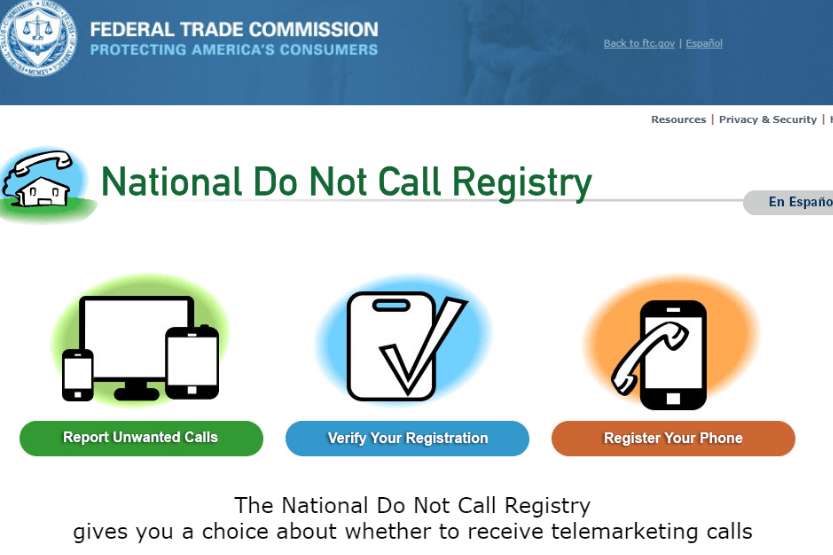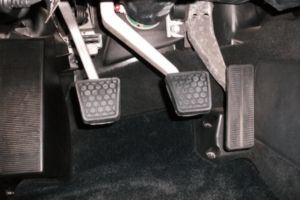Car warranty calls can be a major annoyance for car owners. These calls often come from scammers who are trying to sell fake car warranties or steal personal information. Fortunately, there are ways to stop these calls and protect yourself from these scams.
One of the most effective ways to stop car warranty calls is to add your phone number to the National Do Not Call Registry. This registry is managed by the Federal Trade Commission (FTC) and is designed to protect consumers from unwanted telemarketing calls.
Once your number is on the list, telemarketers are required by law to stop calling you. However, it is important to note that this registry will not stop all calls, particularly those from scammers who are not following the law.
Another way to stop car warranty calls is to be cautious when giving out your personal information. Scammers often get their information from public records, so it is important to be careful about what information you share online or in person.
If you receive a call from someone claiming to be from a car warranty company, do not give them any personal information until you have verified their identity. You can also ask them to remove your number from their call list, although scammers may not comply with this request.
Register with the National Do Not Call Registry

One of the easiest ways to stop receiving pesky car warranty calls is to register with the National Do Not Call Registry. This registry is a free service provided by the Federal Trade Commission (FTC) that allows consumers to opt-out of telemarketing calls.
To register, consumers can visit the DoNotCall.gov website or call 1-888-382-1222 (TTY: 1-866-290-4236) from the phone they want to register. Once registered, it can take up to 31 days for telemarketing calls to stop.
It is important to note that while the registry will stop most telemarketing calls, it does not stop calls from all organizations. For example, calls from charities, political groups, debt collectors, and surveys may still be received.
To ensure that legitimate telemarketers do not call, consumers should keep their registration current by re-registering every five years. Additionally, if a telemarketer continues to call after 31 days of registration, consumers can report the unwanted call to the FTC.
In July 2022, the FCC ordered phone companies to stop carrying car warranty scam robocall traffic from an operation believed to have made more than 8 billion robocalls.
However, it is still important to register with the National Do Not Call Registry to protect against other unwanted telemarketing calls.
Overall, registering with the National Do Not Call Registry is a simple and effective way to stop receiving unwanted car warranty calls.
Hang up and Block the Number
The first thing to do when receiving a car warranty spam call is to hang up immediately. These calls are often automated, so there is no point in engaging with the caller. Hanging up will also prevent the call from being recorded as a successful connection, which may lead to more calls in the future.
After hanging up, the next step is to block the phone number. Most smartphones have a built-in feature that allows users to block phone numbers.
On an iPhone, for example, users can go to the recent calls list, click the “i” icon next to the number, and then select “Block this Caller.”
On Android phones, users can go to the phone app, select the number they want to block, and then click the three dots in the upper-right corner and select “Block number.”
It is also essential to use caller ID to screen calls. Many smartphones have a feature that displays the name and phone number of the person calling. This can help users identify spam calls and avoid answering them. If the caller ID shows an unknown number, it is best to let the call go to voicemail.
Another useful feature is “Silence Unknown Callers.” This feature is available on some smartphones, including iPhones, and automatically sends calls from unknown numbers straight to voicemail. This can be an effective way to avoid unwanted calls altogether.
It is important to remember not to answer calls from unknown numbers or numbers that are not saved in the phone’s contacts. Answering these calls may lead to more spam calls in the future. If a call is important, the caller will leave a voicemail, and the user can call back at a later time.
To combat car warranty spam calls, as a mechanic, I recommend promptly hanging up, blocking the number, utilizing caller ID for call screening, and enabling the “Silence Unknown Callers” feature. These actions safeguard against scams and ensure protection from unwanted calls.
Do Not Provide Personal Information
Per the FCC’s recommendations, it is important to refrain from disclosing personal details such as your social security number, credit card information, driver’s license number, or bank account details to any caller unless you can confirm that you are dealing with a reputable company with whom you already have an existing business association.
This includes sensitive information such as social security numbers, credit card information, driver’s license numbers, bank account information, payment information, and other personal details.
Scammers often ask for this information to steal the victim’s identity or to make unauthorized charges to their credit cards or bank accounts. It is important to remember that legitimate companies will never ask for this information over the phone.
If a caller claims to be from a legitimate company and asks for personal information, it is always best to hang up and call the company directly using a phone number found on their official website or on a bill or statement.
It is also important to be cautious when receiving emails or text messages requesting personal information. Scammers often use phishing tactics to trick people into giving away their sensitive information. Always verify the legitimacy of the sender before providing any personal information.
In summary, never provide personal information over the phone, email, or text message to someone you do not know or trust. Always verify the legitimacy of the request and the sender before providing any sensitive information.
Recognize and Avoid Scams

If you own a vehicle and a phone, you may receive calls from scammers posing as representatives of a car dealer, manufacturer, or insurer telling you that your car warranty or insurance is about to expire. These calls are often part of an auto warranty scam, which is a type of telemarketing fraud.
Identify the Scam
Auto warranty scam calls often begin with a recorded message that sounds like a real person. The message may claim that your car warranty is about to expire, and you need to renew it immediately to avoid costly repairs.
The message may also ask you to press a number to speak to a representative or to be removed from the call list.
If you press the number, you will be connected to a live telemarketer who will try to sell you an extended car warranty or service contract.
The telemarketer may use high-pressure tactics to get you to buy the warranty, such as claiming that the offer is only available for a limited time or that the warranty is necessary to keep your car running.
File a Complaint
If you receive an auto warranty scam call, the best thing you can do is hang up. Do not press any numbers or speak to the telemarketer.
If you are on the National Do Not Call Registry, you can file a complaint with the Federal Trade Commission (FTC) at donotcall.gov. You can also file a complaint with your state’s attorney general’s office or consumer protection agency.
Filing a complaint can help the authorities track down the scammers and shut down their operations. It can also help you avoid future scam calls by adding your number to the Do Not Call Registry.
In conclusion, it is important to recognize and avoid auto warranty scams to protect yourself from fraudsters. If you receive a scam call, do not engage with the telemarketer and file a complaint with the appropriate authorities.
Take Legal Action
If none of the previous methods have worked, it may be time to take legal action against the car warranty scammers. Here are some options to consider:
File a Complaint with the Federal Trade Commission (FTC)
The FTC is the primary agency that enforces the Telemarketing and Robocall Rules. If you receive unwanted telemarketing calls, including car warranty scam calls, you can file a complaint with the FTC.
The agency uses these complaints to identify and take action against scammers. You can file a complaint online or by calling 1-888-382-1222.
File a Complaint with the Federal Communications Commission (FCC)
The FCC is responsible for enforcing the Telephone Consumer Protection Act (TCPA). This law prohibits telemarketers from using automated dialers to call cell phones without prior express consent.
If you receive unwanted car warranty scam calls on your cell phone, you can file a complaint with the FCC. The agency uses these complaints to identify and take action against violators of the TCPA. You can file a complaint online or by calling 1-888-225-5322.
Contact an Attorney
If you have received a large number of car warranty scam calls, you may be able to file a lawsuit against the scammers.
There are attorneys who specialize in consumer protection and can help you take legal action. They may be able to help you recover damages for the harm caused by the unwanted calls.
Join a Class Action Lawsuit
If you have received unwanted car warranty scam calls along with many other people, you may be able to join a class action lawsuit against the scammers.
In a class action lawsuit, a large group of people who have been harmed by the same conduct can sue the responsible party together. This can be a more efficient and cost-effective way to seek justice.
Taking legal action against car warranty scammers can be a powerful way to fight back against their harassment. By filing complaints, contacting attorneys, and joining class action lawsuits, you can help hold these scammers accountable for their illegal and unethical behavior.
Contact Your Car Dealer or Dealership
If you are tired of receiving pesky car warranty calls, consider contacting your car dealer or dealership. They may be able to provide you with some helpful information about the calls and how to stop them.
First, check if your car’s warranty is still valid. If your car is still under warranty, you can ask your car dealer or dealership to provide you with a list of authorized service providers. This way, you can avoid any unsolicited calls from unauthorized service providers.
If you have an extended warranty, you can also contact your car dealer or dealership to ask for their assistance in stopping the calls. They may be able to provide you with information on how to opt-out of any telemarketing calls related to your extended warranty.
Additionally, some car dealerships may have a policy of not making unsolicited telemarketing calls to their customers. If this is the case, you can ask your car dealer or dealership to add your phone number to their do-not-call list.
It is important to note that not all car dealers or dealerships will be able to provide you with assistance in stopping car warranty calls. However, it is still worth reaching out to them for help and information.
Overall, contacting your car dealer or dealership can be a helpful step in stopping unwanted car warranty calls.
Use Voicemail and Answering Machines

One of the simplest ways to avoid car warranty scam calls is to use voicemail or an answering machine. When an unknown number calls, let the call go to voicemail or the answering machine. This way, you can screen the calls and only answer the ones that are legitimate.
If the caller is a scammer, they will usually hang up without leaving a message. However, if they do leave a message, you can listen to it and decide whether to call back or not. If the message is about a car warranty, it is likely a scam call.
To make this process even easier, consider customizing your voicemail or answering machine message. You can include a message that says you do not answer calls from unknown numbers or that you are not interested in car warranty offers.
Another option is to use your phone’s built-in features to silence unknown callers. This way, instead of seeing a robocall come through, it is silenced and sent to your voicemail. You’ll see a notification that you missed a call, but you won’t be bothered by the scam call.
It is important to note that scammers may still leave messages even if they are sent to voicemail or the answering machine. Therefore, it is important to be vigilant and not return calls from unknown numbers or those that seem suspicious.
Overall, using voicemail and answering machines can be an effective way to avoid car warranty scam calls. By screening calls and customizing your message, you can protect yourself from unwanted calls and potential scams.
Protect Yourself from Spoofing
Car warranty scammers are becoming more sophisticated and are using spoofing techniques to make their calls appear legitimate.
Spoofing is when a hacker disguises their phone number to make it look like it is coming from a local area code, even though the call is actually coming from a different location. This makes it difficult for the recipient to know whether the call is legitimate or not.
To protect yourself from spoofing, here are some tips:
- Don’t answer calls from unknown numbers: If you receive a call from an unknown number, let it go to voicemail. If it’s important, the caller will leave a message.
- Don’t trust caller ID: Just because the caller ID shows a local area code doesn’t mean the call is legitimate. Scammers can easily spoof the caller ID to make it look like the call is coming from a local number.
- Don’t give out personal information: If you do answer a call from an unknown number, don’t give out any personal information. Scammers will often ask for personal information, such as your name, address, or social security number, to try and steal your identity.
- Use call-blocking software: Many phone companies offer call-blocking software that can help protect you from spoofing. This software can automatically block calls from known scammers and can also block calls from unknown numbers.
- Report suspicious calls: If you receive a suspicious call, report it to the Federal Trade Commission (FTC). The FTC investigates and prosecutes companies that engage in illegal telemarketing practices, including car warranty scams.
By following these tips, you can help protect yourself from spoofing and other car warranty scams. Remember, if something seems too good to be true, it probably is.
Be Cautious of Urgency
When receiving car warranty calls, it is important to be cautious of any sense of urgency conveyed by the caller. Scammers often use urgency as a tactic to pressure individuals into making quick decisions without thinking them through.
For instance, the caller may claim that the warranty is about to expire or that there is an urgent problem with the vehicle that needs immediate attention. They may also offer a limited-time offer or a special deal that is only available if the individual acts quickly.
It is important to take a step back and assess the situation before making any decisions. Individuals should ask themselves if the urgency is justified or if it is simply a tactic to pressure them into making a decision.
One way to verify the legitimacy of the call is to ask for more information and contact the warranty provider directly. Individuals should never provide personal information or payment over the phone unless they are certain of the legitimacy of the call.
In addition, individuals should never feel pressured to make a decision on the spot. Legitimate warranty providers will give individuals time to review the information and make an informed decision.
Overall, it is important to be cautious of any sense of urgency conveyed by car warranty callers. Individuals should take the time to verify the legitimacy of the call and make informed decisions without feeling pressured.
Legitimate Telemarketers and Charities
While many car warranty calls are scams, there are still legitimate telemarketers and charities that may call you. It’s important to know how to differentiate these calls from scams and how to handle them.
Legitimate Business Calls
If you have recently purchased a car or have a warranty with a legitimate company, you may receive calls from their sales or customer service representatives. These calls are usually not scams, but it’s still important to be cautious and verify the identity of the caller.
When you receive a call from a legitimate business, ask for the name of the company and the caller’s name and extension.
You can then call the company back using their official phone number to verify that the call was legitimate. If the caller refuses to provide this information, it may be a red flag that the call is a scam.
Legitimate Telemarketers
Telemarketing is a common sales technique used by many legitimate businesses. If you receive a call from a telemarketer, it’s important to listen carefully to the pitch and ask questions to determine if the call is legitimate.
Telemarketers are required by law to provide certain information, including their name and the name of the company they are calling on behalf of. They must also provide a phone number where you can contact them. If the caller refuses to provide this information, it may be a sign that the call is a scam.
Charities
Charities may also call you to solicit donations. While many charities are legitimate, some may be scams. Before donating to a charity over the phone, do your research to ensure that it is a legitimate organization.
You can verify a charity’s legitimacy by checking their registration with the National Association of State Charity Officials or by using websites such as Charity Navigator or Guidestar. These sites provide information on a charity’s finances and how they use donations.
If you are unsure if a call is from a legitimate charity, ask for more information about the organization and how donations are used. Legitimate charities should be able to provide this information without hesitation.
Overall, it’s important to be cautious when receiving calls from unfamiliar numbers. By verifying the identity of the caller and doing your research, you can avoid falling victim to car warranty scams while still supporting legitimate businesses and charities.
To Sum Up
In summary, receiving car warranty calls can be a frustrating experience. However, there are several ways to stop these calls from coming through.
Firstly, individuals can add their phone number to the National Do Not Call Registry. This registry is managed by the Federal Trade Commission (FTC) and prohibits telemarketers from calling registered numbers.
It is important to note that this registry does not apply to calls from charities, political campaigns, or surveys.
Another option is to use call blocking and filtering apps. These apps can help identify and block unwanted calls, including those from car warranty scammers. Some phone carriers also offer their own call blocking services, so it is worth checking with your provider.
It is also recommended to avoid answering calls from unknown numbers. If a call is important, the caller will likely leave a voicemail. Additionally, individuals should never provide personal information over the phone to an unknown caller.
Overall, stopping car warranty calls requires a combination of preventative measures and caution. By taking these steps, individuals can reduce the number of unwanted calls they receive and protect themselves from potential scams.




![Stop Vehicle Leave Engine Running [Causes for This Mercedes Warning Light] stop vehicle leave engine running](https://roadsumo.com/wp-content/uploads/2022/04/stop-vehicle-leave-engine-running-150x150.jpg)




